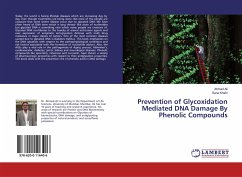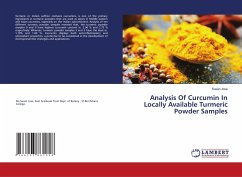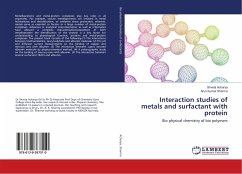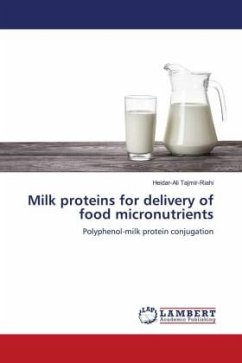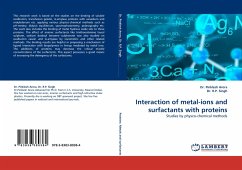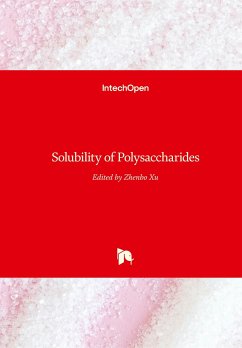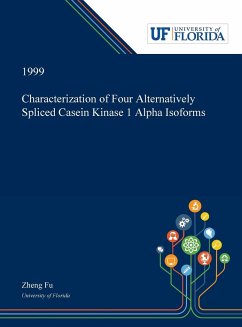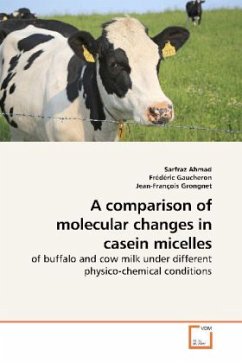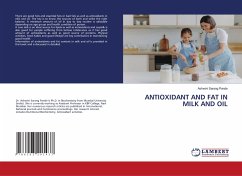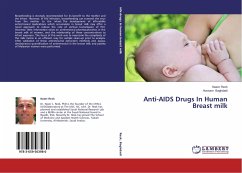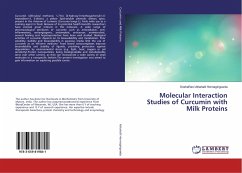
Molecular Interaction Studies of Curcumin with Milk Proteins
Versandkostenfrei!
Versandfertig in 6-10 Tagen
47,99 €
inkl. MwSt.

PAYBACK Punkte
24 °P sammeln!
Curcumin (diferuloyl methane; 1,7-bis [4-hydroxy-3-methoxyphenyl]-1,6-heptadiene-3, 5-dione), a yellow lipid-soluble phenolic dietary spice, present in the rhizome of turmeric (Curcuma longa L), finds wide use as a coloring agent in food. Because of its potential health benefits researchers have evinced great interest in this molecule. A wide range of pharmacological attributes of curcumin such as antioxidative, anti-inflammatory, antiangiogenic, antiamyloid, anticancer, antimicrobial, wound healing and hepatoprotective have been well studied. Biological activities of curcumin depend on its bi...
Curcumin (diferuloyl methane; 1,7-bis [4-hydroxy-3-methoxyphenyl]-1,6-heptadiene-3, 5-dione), a yellow lipid-soluble phenolic dietary spice, present in the rhizome of turmeric (Curcuma longa L), finds wide use as a coloring agent in food. Because of its potential health benefits researchers have evinced great interest in this molecule. A wide range of pharmacological attributes of curcumin such as antioxidative, anti-inflammatory, antiangiogenic, antiamyloid, anticancer, antimicrobial, wound healing and hepatoprotective have been well studied. Biological activities of curcumin depend on its bioavailability and metabolism. Poor solubility, stability and bioavailability in aqueous media limit the use of curcumin as an efficient medicine. Food based nanocomplexes improve bioavailability and stability of ligands, providing protection against degradation by environmental stress (e.g. light, heat, oxygen or pH sensitivity).Protein nanoparticles, being biodegradable and metabolizable serve over other carriers, as they can incorporate a wide variety of small molecules in a nonspecific fashion.The present investigation was aimed to gain information on exploring possible carrier.



